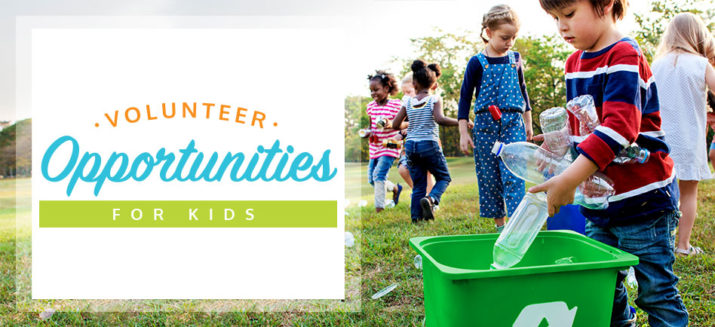
It’s important for kids to know even small acts can make a difference. Volunteering teaches this lesson and builds caring and empathy in children from an early age. Even toddlers are capable of learning about compassion and community responsibility through volunteering.
Finding the Age Appropriate Volunteering Activities
Choosing the right volunteer opportunities for kids helps keep them invested in charitable activities. Start by calling your local volunteer center. Describe your own interests and your kids’ ages, and ask the center for some volunteering suggestions. You can also contact church or religious centers, local nursing homes, food banks, and animal shelters.
Preparing Children for Volunteering
Once you decide how your family is going to volunteer, sit down with the kids and explain what you’ll be doing and why. Be enthusiastic, and present volunteering as fun as well as the right thing to do. (This is important. Even adults are more likely to honor volunteering commitments if they enjoy what they’re doing.)
Kids will have questions, of course. Answer them as honestly as possible. For instance, if kids want to know why the family will be volunteering at a nursing home, explain you’ll be helping keep older people like Grandma and Grandpa company. Emphasize why the volunteering is important—you’re helping make sure the old folks don’t get lonely, or you’re helping keep the park clean so everyone can enjoy it.
Volunteering Opportunities for Kids
Below are just some of the many volunteering opportunities your kids can get involved with. They include:
- Animal Shelters: animal shelters offer plenty of volunteer opportunities for kids. For kids, this often means playing with puppies and kittens, which helps socialize the animals and makes them more likely to get adopted. You can also foster animals in your home, or volunteer at local animal sanctuaries.
- Armed Forces Care Packages: several online organizations help volunteers send care packages to members of the armed forces. When you’re deployed, a package of home-baked cookies and a thank-you drawing from a child can be a real morale boost. Packages can also include small items like playing cards, tooth brushes, and toiletries.
- Charity Walks: nonprofits often hold walks to raise awareness and funds. Family and friends can sponsor kids for the walk, and you’re all getting active as a family.
- Clean Ups: adopt a local park, monument, or your own neighborhood and keep it clean. Be sure to wear gloves and supervise kids closely so they don’t pick up anything harmful.
- Deliver Meals: have kids help you deliver meals and a little companionship to the elderly or disabled in your community,
- Food Drives: have kids pick a nonperishable food item every time you go to the grocery store, and donate the food when you have a bag or two full. This activity offers a chance to talk about healthy food choices.
- Hospital Boxes: kids can decorate shoeboxes and fill then with games, coloring books, stickers, and small toys for kids in your local hospital. Dollar stores are great hunting grounds for box contents.
- Make Friends with a Developmentally-Disabled Adult: call local residential centers for the mentally disabled and ask them if they have residents you can visit. The center should be able to guide you towards residents who interact well with children.
- Nursing Homes: kids can play games, sing, or just talk to elderly residents, either in groups or by focusing on one special “grand friend.”

